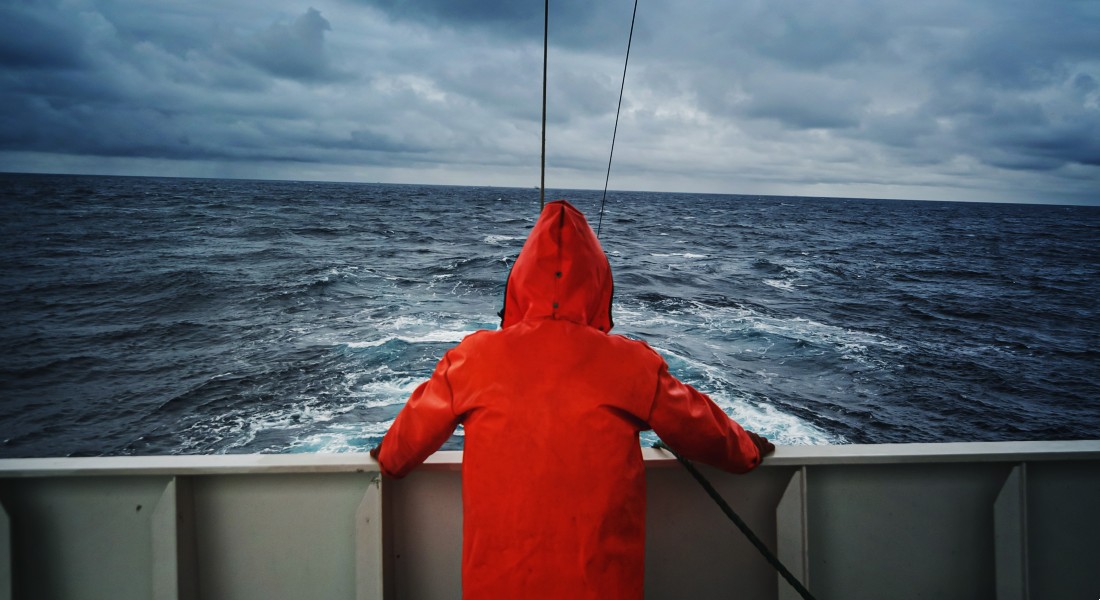
Brexit will have less financial impact on Danish seafood industry and employment than feared
New calculations from the University of Copenhagen demonstrate that Britain's adieu to the EU will have less of an impact on the Danish seafood industry and wholesale trade than feared. At worst, Brexit could lead to a clip in revenue of between 2.5 and 4.6 percent.

There has been considerable speculation about how Britain’s protracted divorce from the EU will affect the Danish seafood industry. Up until last year, Danish fishermen netted roughly a third of their catch in British waters. In the wake of Brexit, fears have flourished that access to these fishing grounds will be greatly limited.
But new calculations prepared by economists at the University of Copenhagen’s Department of Food and Resource Economics for the Danish Ministry of Food, Agriculture and Fisheries suggest that Brexit’s impact on the seafood industry won’t be as dire as once feared.
According to the calculations, the entire Danish fishing industry and wholesale trade stands to lose a maximum of about two percent of its annual turnover as a result of customs duties. A further reduction of between 0.5 and 2.6% in turnover will be due to a decrease in raw material supply from Danish fishermen, i.e., fewer fish to catch. However, this could be mitigated greatly if exports to other countries increase.
"Herring and mackerel quotas are the only ones that are one hundred percent used today. Other fish quotas reduced by the Brexit deal are only partially exploited. This means that the fish lost due to reduced quotas could be partially replaced by making better use of them and finding other EU countries to export to," explains economist and associate professor Max Nielsen of UCPH’s Department of Food and Resource Economics.
Thus, even if the Danish fishing quotas included in the Brexit agreement are reduced by 9 percent in all, there are still fish to be caught, for most species, should the current quotas be fully exploited.
Customs duties will punish prawns
While the calculations show that the broader fishing industry will escape with a slight decline in revenue, the new Brexit deal will be particularly unpleasant for the prawn trade. Denmark exports 7,000 tonnes of prawns worth DKK 509 million to the UK annually — all of which will now be subject to customs duties.
"Denmark imports a vast amount of prawns from Greenland which are subsequently exported directly to the UK. According to the new agreement, customs duties will now be required as Greenland is a third and non-EU country," explains Max Nielsen."
Customs duties do not extend to canned mackerel, fresh cod, fresh mackerel, hermetically sealed packages of mussels and fishmeal, worth a total value of 366 million Danish kroner› (€49.1 million), or 24% of exports to the UK.
According to the new calculations, between 148 and 271 full-time employees in the seafood industry and seafood wholesale also risk losing their jobs. However, this is based on a worst-case scenario.
"This is a maximum estimate, which in reality, is expected to be lower. In part, this is because those goods no longer exported to the UK due to customs duties will likely be sold elsewhere. Thus, any decrease in turnover will be mitigated," concludes Max Nielsen.
Facts:
- The calculations were carried out as a public sector service for the Ministry of Food, Agriculture and Fisheries of Denmark.
- In 2019, Danish exports of seafood and seafood products to the UK amounted to DKK 1.5 billion (€202M) out Denmark’s total exports of fish and fish products worth DKK 27.6 billion (€3.7B), roughly 5,5%. About DKK 800 million (€107M) of this amount could now be subject to customs duties.
- Danish quotas in the areas affected by the Brexit deal will be reduced by 9.0% overall
- 4,697 people were employed full time in the Danish seafood industry and wholesale trade in 2015.
Related News
Contact
Max Nielsen
Associate Professor
Department of Food and Resource Economics
University of Copenhagen
Phone: + 45 35 33 68 94
Email: max@ifro.ku.dk
Michael Skov Jensen
Journalist
The Faculty of Science
University of Copenhagen
Phone: +45 93 56 58 97
Email: msj@science.ku.dk


